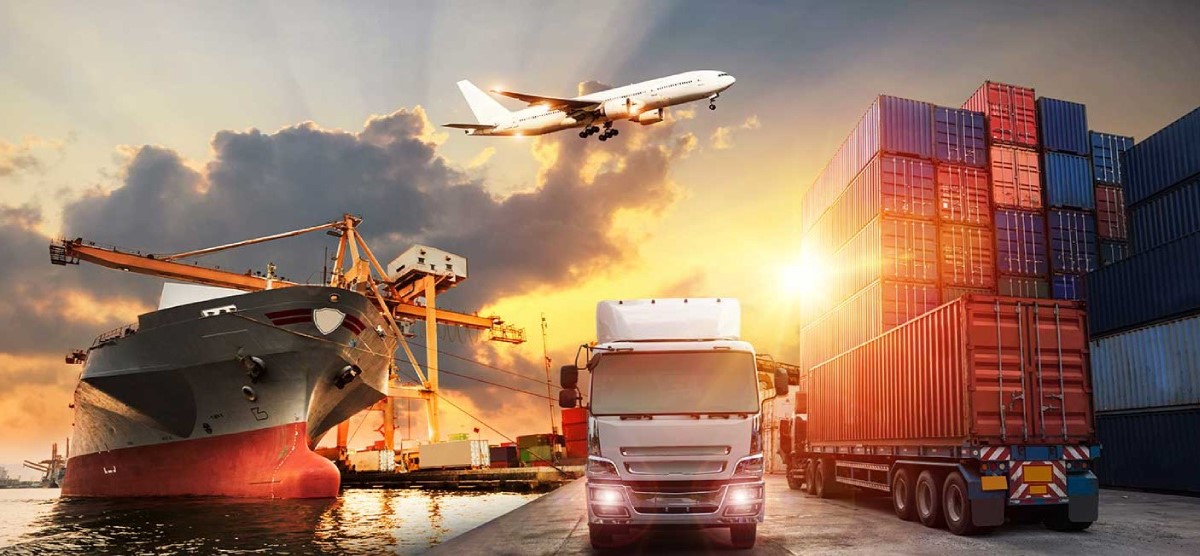
Cargo services play a vital role in global trade, ensuring goods reach their destinations efficiently. But what exactly are cargo services? They encompass the transportation of goods by air, sea, or land, managed by specialized companies. These services handle everything from small parcels to oversized freight, making sure items are delivered safely and on time. Why are they important? They keep the supply chain moving, support businesses, and connect markets worldwide. Whether it's perishable food, electronics, or industrial machinery, cargo services ensure products are available where needed. Curious about how they operate? Let's dive into 20 fascinating facts that shed light on this crucial industry.
The Importance of Cargo Services
Cargo services play a vital role in the global economy. They ensure goods reach their destinations efficiently and safely. Here are some fascinating facts about cargo services.
-
Cargo services handle over 52 million tons of goods annually. This staggering amount highlights the sheer volume of products transported worldwide.
-
Air cargo services account for 35% of global trade by value. Despite representing a small fraction of total cargo by weight, air freight is crucial for high-value and time-sensitive goods.
-
The first air cargo flight took place in 1910. A Wright Model B aircraft transported 200 pounds of silk from Dayton to Columbus, Ohio.
-
Container ships can carry over 20,000 TEUs (Twenty-foot Equivalent Units). These massive vessels are the backbone of maritime cargo services, facilitating international trade.
-
The largest cargo plane is the Antonov An-225 Mriya. This Ukrainian aircraft can carry up to 640 tons, making it essential for transporting oversized cargo.
Technological Advancements in Cargo Services
Technology has revolutionized cargo services, making them more efficient and reliable. Here are some key technological advancements.
-
RFID technology tracks cargo in real-time. Radio Frequency Identification (RFID) tags provide accurate, up-to-date information on the location and status of shipments.
-
Drones are being used for cargo delivery. Companies like Amazon and UPS are experimenting with drone technology to deliver packages quickly and efficiently.
-
Blockchain technology ensures secure and transparent transactions. This innovation helps reduce fraud and streamline the documentation process in cargo services.
-
Automated warehouses improve efficiency. Robotics and automation systems speed up the sorting and handling of cargo, reducing human error.
-
IoT devices monitor cargo conditions. Internet of Things (IoT) sensors track temperature, humidity, and other factors to ensure sensitive goods remain in optimal condition.
Environmental Impact of Cargo Services
Cargo services have a significant environmental footprint. Efforts are being made to reduce their impact. Here are some facts about the environmental aspects of cargo services.
-
Shipping accounts for 3% of global CO2 emissions. The maritime industry is working on reducing its carbon footprint through cleaner technologies and alternative fuels.
-
Electric cargo vehicles are gaining popularity. Companies are investing in electric trucks and vans to reduce emissions in urban delivery networks.
-
Sustainable packaging is becoming more common. Eco-friendly materials and designs help minimize waste and environmental impact.
-
Slow steaming reduces fuel consumption. By operating at lower speeds, ships can significantly cut their fuel use and emissions.
-
Green logistics practices are being adopted. These include optimizing routes, consolidating shipments, and using renewable energy sources.
Challenges Faced by Cargo Services
Despite their importance, cargo services face numerous challenges. Here are some of the most pressing issues.
-
Port congestion causes delays. Busy ports can lead to long wait times for ships, disrupting supply chains.
-
Customs regulations vary by country. Navigating different rules and procedures can be complex and time-consuming.
-
Piracy remains a threat. Certain regions, like the Gulf of Aden, are hotspots for pirate attacks on cargo ships.
-
Labor shortages impact efficiency. A lack of skilled workers can slow down cargo handling and transportation processes.
-
Weather conditions affect cargo transport. Severe weather events, such as hurricanes and blizzards, can disrupt shipping schedules and damage goods.
Final Thoughts on Cargo Services
Cargo services play a vital role in keeping the world connected. From air freight to ocean shipping, these services ensure goods reach their destinations safely and efficiently. They support global trade, help businesses grow, and make sure consumers get what they need. Understanding the different types of cargo services, their benefits, and challenges can help businesses make informed decisions. Whether it's express delivery or bulk shipping, each service has its unique advantages. As technology advances, cargo services will continue to evolve, offering even more efficient and reliable options. So next time you receive a package or see a cargo ship, remember the complex network working behind the scenes. Cargo services truly are the backbone of global commerce, making the world a smaller, more connected place.
Was this page helpful?
Our commitment to delivering trustworthy and engaging content is at the heart of what we do. Each fact on our site is contributed by real users like you, bringing a wealth of diverse insights and information. To ensure the highest standards of accuracy and reliability, our dedicated editors meticulously review each submission. This process guarantees that the facts we share are not only fascinating but also credible. Trust in our commitment to quality and authenticity as you explore and learn with us.


